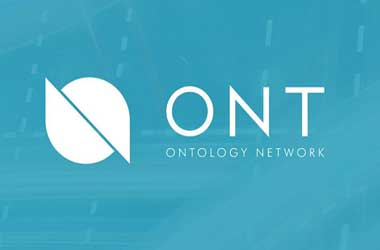
Ontology provides new high-performance public blockchains that include a series of complete distributed ledger and smart contract systems. On the upper layer, Ontology will constantly provide common modules for different kinds of distributed applications, such as distributed digital identity framework, distributed data exchange protocols, and so on, which each support distributed trust collaboration. Based on specific scenario requirements, Ontology will continue to develop new common modules.
Considering the large scale of the public blockchain infrastructure, Ontology will be rapidly deployed through an open-minded, open-source model and accompanying technical community to rapidly deploy projects together. Portions can also be gradually deployed to different scenarios, with feedback being continuously applied to enhance functions required for practical applications. Therefore, Ontology will use a multi-version rapid iterative method to continuously promote the basic chain and related application service system. In the first stage, Ontology will open the first batch of projects for open source, including projects that have nearly completed their first edition and have entered their first testing phase, as well as some projects under development. Some of the projects in the planning and design stage will continue to be open source in the follow up.
Jun Li, Founder of Ontology, said
“After years of exploring, practicing, and thinking deeply on the fields of technology and applications, we acknowledge that blockchain brings about social collaboration in finance, business, organizations, and populations. It reduces costs, increases efficiency, and even changes values of existing models in business and social collaboration. We must also recognize that blockchain is still without perfection, as it faces many problems in technology, ecosystem, and other mechanisms that need to be explored to support mainstream industries. Therefore, at this stage, industry collaboration is far more important than competition. Ontology will continuously cooperate with industry peers and technology communities in the spirit of open source and open cooperation in order to advance the development of blockchain technology and the industry.”
About Ontology
The founders of NEO, DaHongFei and Erik Zhang, established a company named OnChain, which has launched Ontology Network on November 27, 2017. The official website of Ontology lists Jun Li as the Founder of Ontology, and his LinkedIn lists him as the co-founder/ chief architect of Onchain. It should be clarified that NEO does not own Onchain nor Onchain own NEO. In a Youtube interview, Da Hongfei clears up the confusion with the companies roles.
on chain
“First, I need to clarify that NEO and Onchain are separate entities, so Onchain doesn’t own NEO, or NEO, Onchain. They are separately funded – NEO is funded by the community, and Onchain is funded by a very famous financial group in China, Fosun. They bought a lot of insurance companies and banks in Europe. So they are separate. Second, Onchain benefits from the NEO ecosystem. The product, called DNA, is very similar to NEO, but it is written in the Go language. OnChain is helping other blockchains and financial institutions to build their blockchains with DNA. It’s basically very similar to NEO, and in the future, with NEOx (the cross-chain protocol) everything can be linked together.”
The Ontology Network aims to create a simple and reliable method to verify identity and financial records, using block chain as a trust machine. The developers will provide the open source network free of cost to their industry partners. Therefore, the system will act as a combination of a traditional centralized system with newer block chain technology. Both systems will be linked through block chain oracles.
The holders of the ONT tokens will have a say on the decisions taken in the Ontology ecosystem. A total of one billion ONT tokens was created on the genesis block. Interestingly, similar to NEO, the ONT tokens is not divisible. The network will also use Ontology Gas (ONG) to pay for transactions and computations.